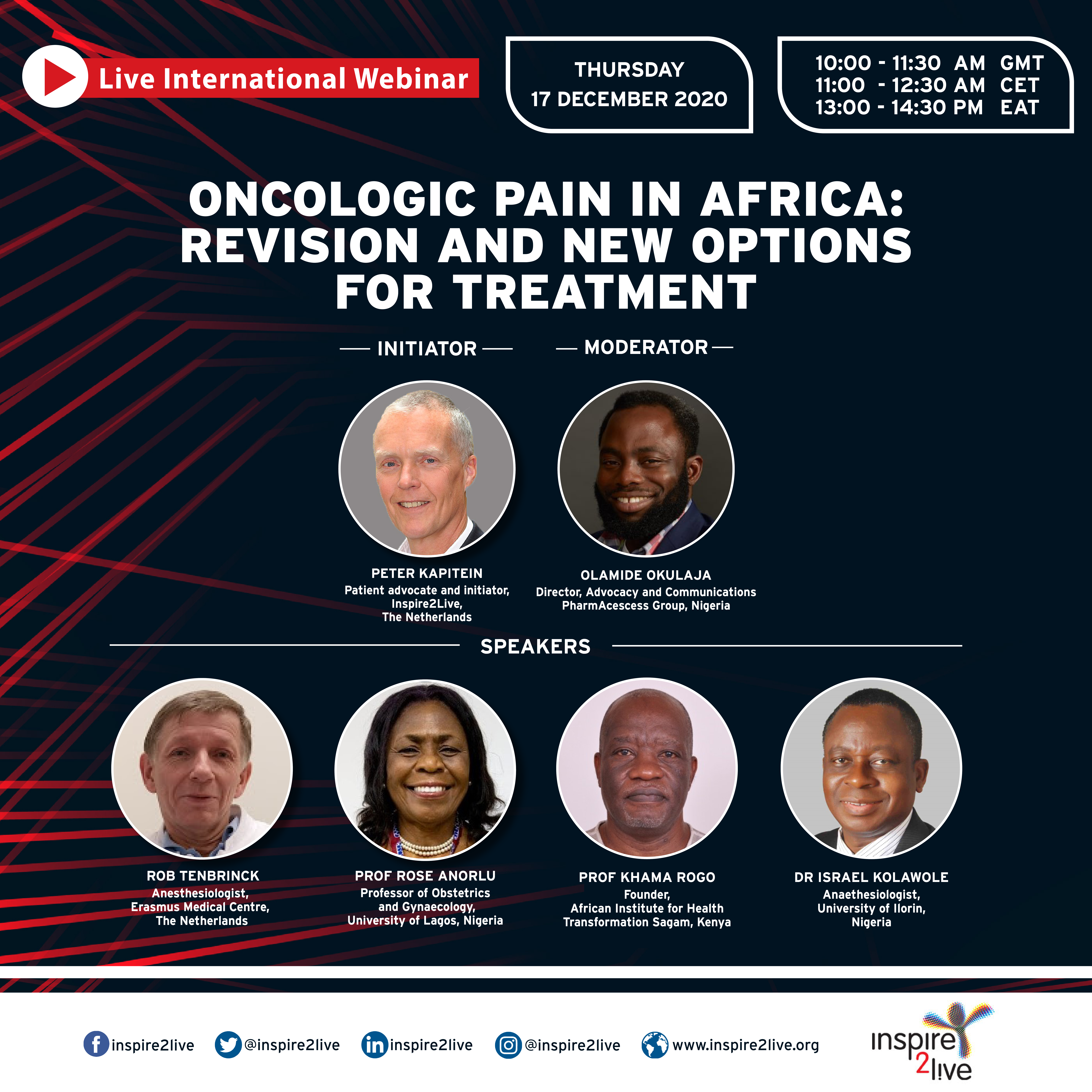Inspire2Live and PharmAccess will organize a webinar on pain in and for Africa on December 17th, 11 AM, CET. We invite you to register here and participate.
Pain is the most frequent symptom in the presence of advanced cancer. Yet, the treatment of pain is often inadequate, ineffective and only applied in the later stages of disease which contributes to medical complications and increases the psychological burden for patients and their relatives. In Africa, pain management needs a paradigm shift and pain drugs need to be cheap, safe, easily available and not addictive so that many patients can benefit from them.
Join us as experts explain the mechanism of pain by sharing the latest insights, options for new treatment and by discussing how to train a new generation of pain specialists in Africa.
The webinar
11.00 – 11.05 Why this webinar? (Peter Kapitein)
Purpose is to come to a local applicable treatment for oncologic pain with spread to the normal pain practice. We must emphasize on what is new and based on the mechanism explained. We should not repeat existing options, during discussions can be disclosed that these already fit in the mechanism when you properly understand this mechanism.
11.05 – 11.30 Why we need new treatment options? (Rob Tenbrinck)
What are potential difficulties for the region specific logistics and knowledge?
11.30 – 12.00 The practical process as it is now explained by local doctors (Rob Tenbrinck)
Based on the selection of clinicians by Rose Anorlu, Khama Rogo and Israel Kolawole questions and explanations of these local practices are discussed. Preferably inall countries so we can afterwards discuss the differences in the panel.
12.00 – 12.30 Panel discussion
Panel discussion with Rose Anorlu, Khama Rogo, Israel Kolawole and Rob Tenbrinck. Panel lead Olamide Okulaja
12.30 – 12.35 Closure (Peter Kapitein)

